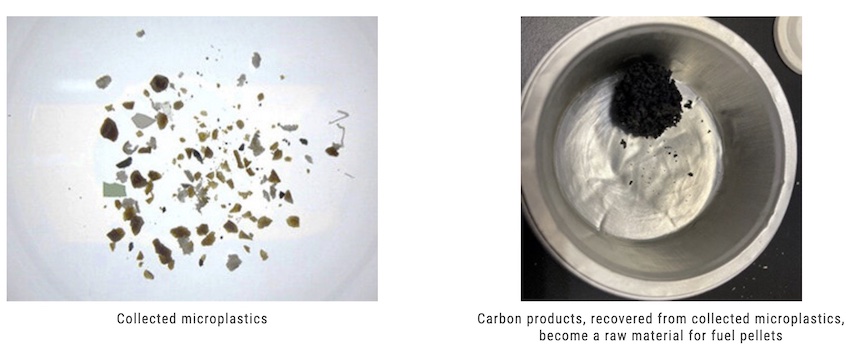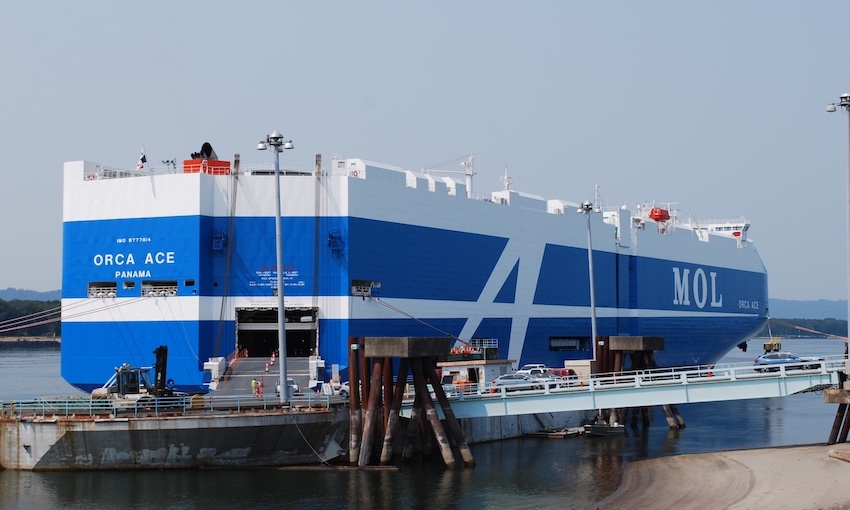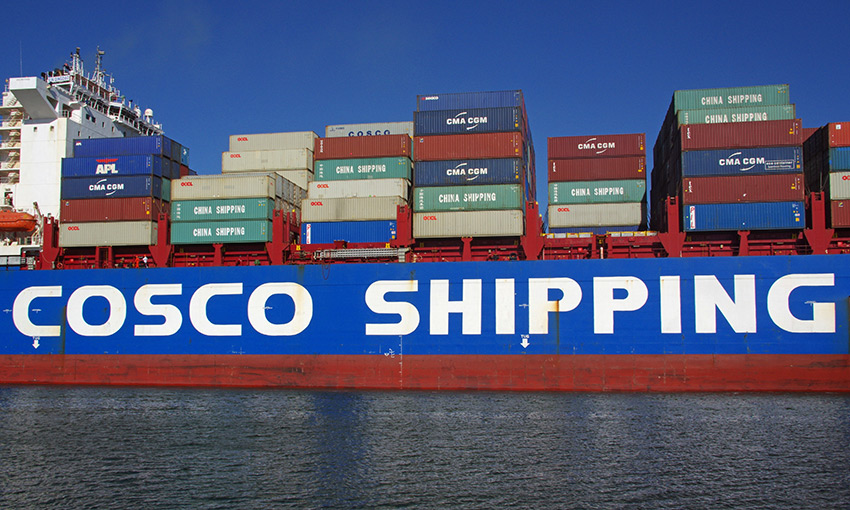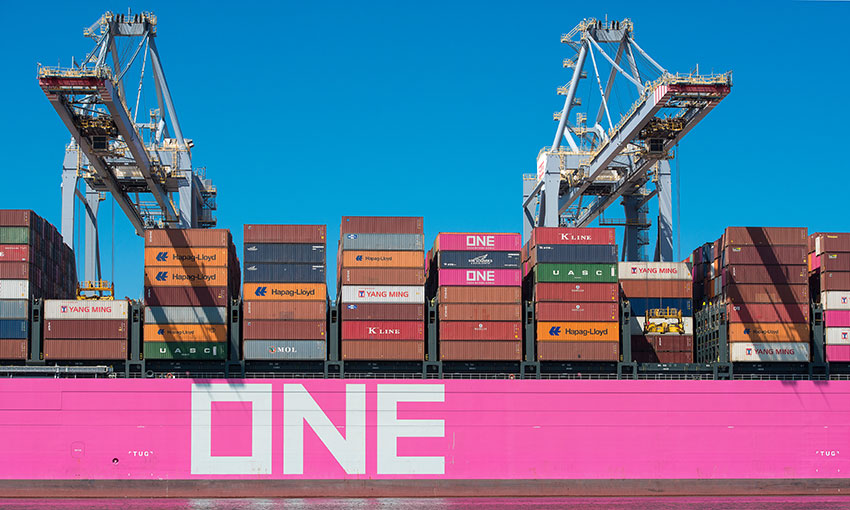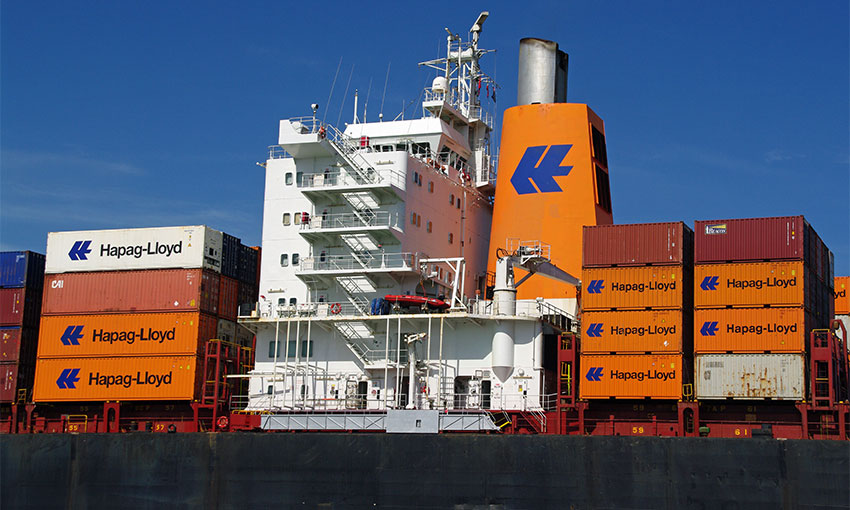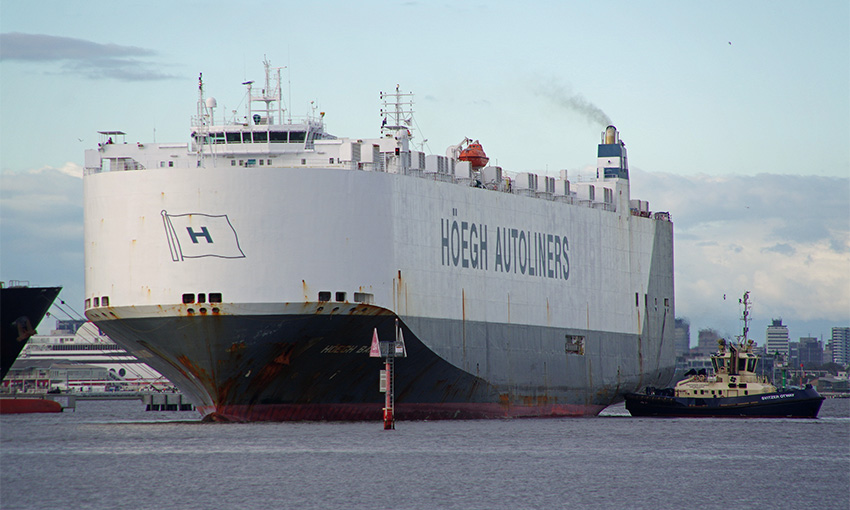MITSUI OSK Lines and its project partner have successfully produced carbon products, a potential source of energy comparable to wood pellets, from microplastics and microalgae collected by a special device on a MOL-operated vessel.
MOL and team Eco Trinity led by Novelgen Co have successfully demonstrated the potential use of microplastics as an energy resource, and could encourage the collection of microplastics from the ocean to increase production of carbon materials and in turn expand the energy supply.
The microplastics and microalgae were mixed and heated to 300 degrees Celsius to decompose the organic matter and produce carbon products. When the carbon product gained through this demonstration test was subjected to calorific value analysis, the results showed a calorific value of 17.1MJ/kg, the same level as wood pellets.
Normally, microplastics are captured by the filter within the ballast water treatment system and discharged overboard. In order to collect the microplastics, a special collection device was installed on the MOL vessel. Demonstrations have shown the device could collect tens of thousands of microplastic units per vessel annually.
The project is part of the MOL Group’s collaborative and creative work to address environmental issues. The group says it will continue to provide solutions to critical problems such as preservation of the marine environment, protection of biodiversity, and prevention of air pollution, making a concerted effort to ensure the sustainable development of society and conserving the natural environment.
In the company’s words, “From the blue oceans, we sustain people’s lives and ensure a prosperous future”.
Eco Trinity works toward practical application of systems that generate secure, safe energy, water, and food resources with decentralised autonomous waste treatment devices and microplastic removal technology at the core.
